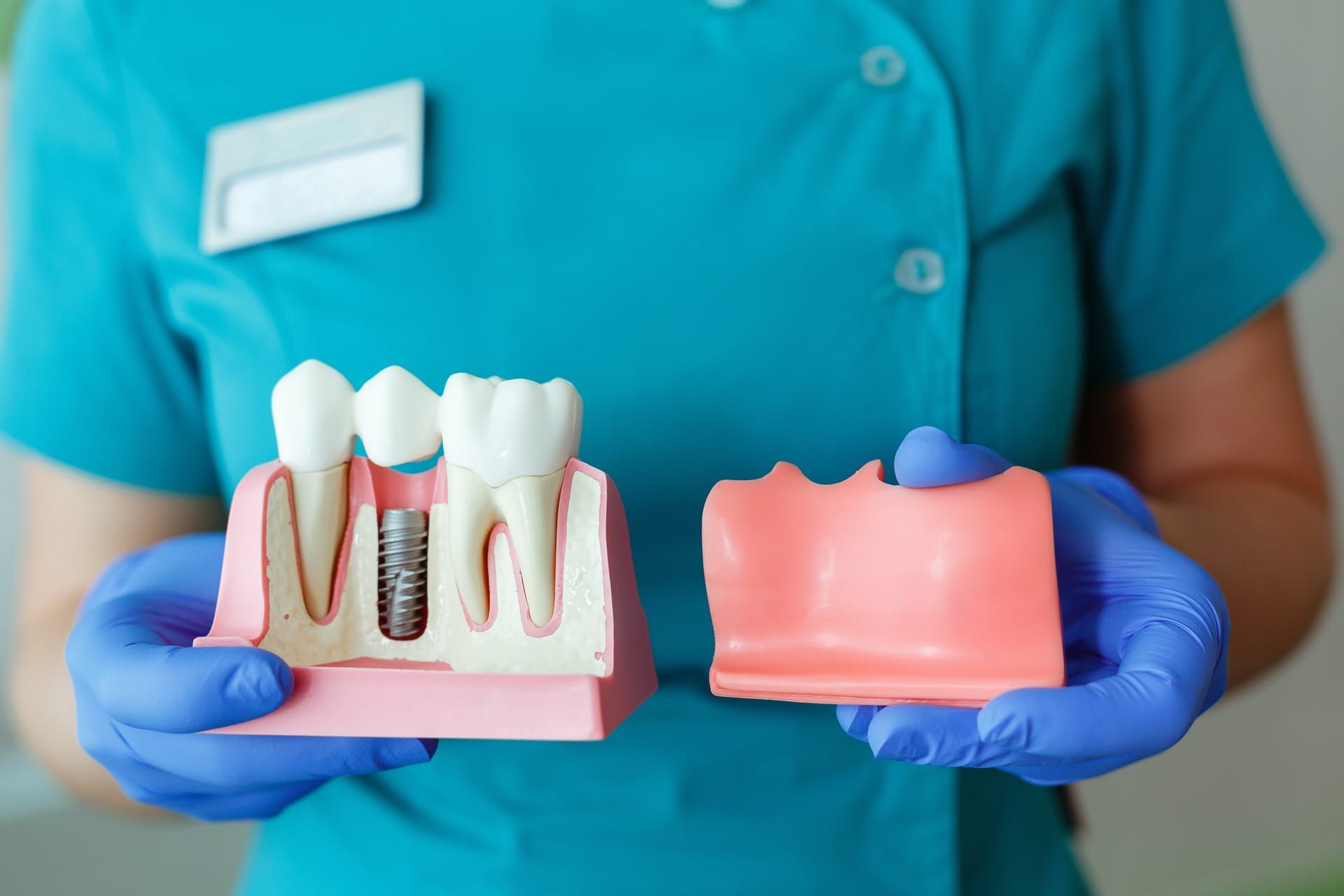
Tooth Replacement
There are a number of alternatives to replace missing teeth, it is a condition that is more common that we realize.
Bridges
What is a dental bridge?
Dental bridges are prosthetic devices used for replacing one or more missing teeth. They are a permanent solution to ‘bridging the gap’ left by one or two missing teeth. The dental bridge consists of dental crowns which attach to the two teeth on either side of the gap.
Dental bridges are custom made for you by a dental laboratory. They can be colour matched to your natural teeth, creating a perfectly natural-looking finish.
Our dentists may recommend a dental bridge to:
- close a gap created by missing teeth
- preserve the appearance of your smile
- avoid your teeth shifting out of place into space created by missing teeth
- restore your smile
The dental bridge process
Getting a dental bridge usually takes around two or three appointments, beginning with a consultation to determine your suitability for the procedure. While the exact process may differ slightly from one patient to another, you can expect it to follow these general steps:
Your dentist will numb the area prior to preparing each tooth on either side of the gap as these are the teeth will support your bridge.
After the preparation is complete, your dentist will take impressions or 3D scans.
A temporary bridge is fitted, while you wait for the bridge to be manufactured. Wearing the temporary bridge for 2 weeks will also allow you to get a feel for the real bridge.
When your dental bridge and dental crown are ready, your dentist will make any final fit adjustments before cementing them in place.
Implants
Implants can be used to replace a lost tooth or multiple teeth that are missing or failing.
An implant is a titanium fixture (screw) that replaces the root portion of a missing tooth.
The treatment is usually completed in 2 stages: firstly, placement of the implant into the jawbone, which is followed by a healing period.
Secondly, a crown is fixed to the implant to restore the whole tooth.
A comprehensive dental examination and diagnosis are necessary to determine your oral condition and the most ideal type of prosthesis for you.
Implant supported prosthesis are an alternative to dentures to replace multiple teeth. They are securely fixed in the mouth and act and function like natural teeth.
They do not move in the mouth and can help you chew food and eat better compared to dentures. These dental prosthetics can also help you speak and smile comfortably.
Dentures
Dentures are false teeth that are suitable for patients who have lost most or all their natural teeth. The right type of denture differs from case to case.
There are several types of dentures including:
Full dentures
Full dentures replace all teeth in the upper or lower jaw of the mouth.
The dentures are custom made of acrylic material with acrylic teeth.
As they become loose overtime, they will usually need a relining procedure
to improve the fit.
Immediate dentures
An immediate denture is a full denture that is inserted following teeth removal.
The advantage is there is no waiting time where you will have to go without teeth. However, as your mouth heals and gum shrinkage occurs, you may experience discomfort wearing it and the denture will need a relining procedure.
Partial dentures
A partial denture is a removable appliance which is made to fit the gaps between teeth. Is held in place by the remaining adjacent natural teeth.
